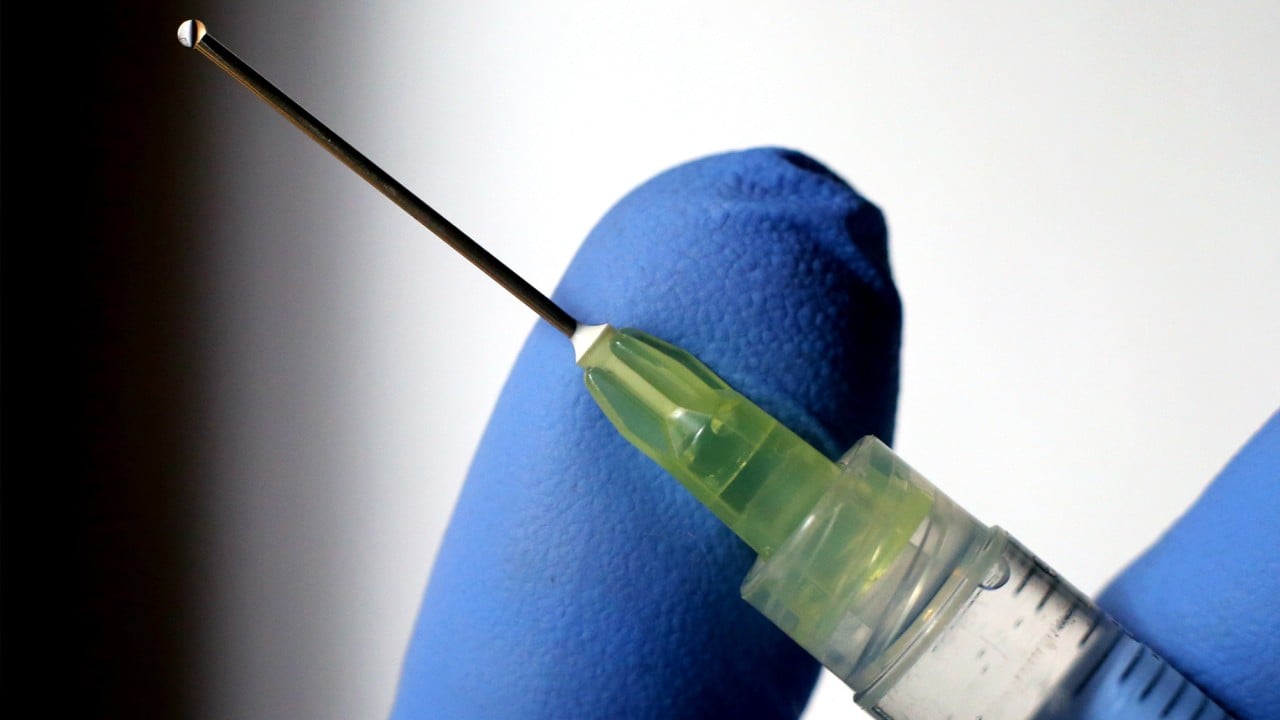
Coronavirus: oral CanSino dose gives a bigger antibody boost than third Sinovac jab, study finds
- Aerosol version of CanSino adenovirus vaccine produced up to 24 times the antibodies against Delta than the control group, researchers find
- The original vaccine was approved for emergency use by the World Health Organization on Thursday
The study, published in the medical journal The Lancet on Friday, showed that an aerosol version of CanSino’s adenovirus-based vaccine, when given as a booster to adults who had received two inactivated vaccines, produced 18.1 to 24 times higher concentration levels of antibodies against the Delta variant than the control group who received a Sinovac vaccine booster.
Researchers, including Professor Zhu Fengcai, deputy director of Jiangsu Provincial Centre for Disease Control and Prevention, and vaccine developer Chen Wei, a professor at the Beijing Institute of Biotechnology at the Academy of Military Medical Sciences, divided the participants into three groups of 140 people to test the safety and immunogenicity of the inhaled version of its adenovirus-based vaccine.
The vaccine, which is inhaled through the mouth, is an aerosol version of the original vaccine, which is one dose and injected into the muscle.
In September, about five months after they completed the primary immunisation course of either Sinopharm or Sinovac inactivated vaccines, one group of participants received a one-fifth dose of the inhaled version of the original vaccine. Another group received two-fifths of a dose and the third group – a control group – was given an inactivated Sinovac vaccine.
The researchers found the booster dose was safe, with five people in the CanSino vaccine groups experiencing fever, headache or fatigue. The most common adverse event in the Sinovac group was pain at the injection site.
CanSino rallies on WHO approval for Covid-19 vaccine
Analysis of the participants’ blood samples 14 days after the booster dose found the level of neutralising antibodies – one indicator of protection against infection – against the original live virus strain was highest in the low-dose group, followed by the high-dose group, and both were nine times higher than those who received the inactivated vaccines.
Analysis of their blood samples 28 days after the booster dose found the level of specific antibodies against the live Delta variant was still the highest in the low-dose group – although it was substantially reduced compared with the level against the original virus strain – followed by the high-dose group, and both had 18 to 24 times the antibody level of the group that received Sinovac vaccine as a booster.
The researchers did not identify why the lower dose yielded higher antibodies. The difference in antibody response between younger and older participants was not statistically significant.
However, the researchers said the study did not measure the oral vaccine’s performance against Omicron, which was proving resistant to immunity from vaccination or infection.
Are inhaled Covid-19 vaccines the future?
“We only evaluated immunogenicity and not the efficacy of the heterologous boost immunisation with the aerosolised Ad5-nCoV [CanSino vaccine] in vaccinated individuals,” the authors cautioned.
“The high concentration of serum neutralising antibodies following the booster is encouraging, but might not guarantee a higher efficacy against symptomatic Covid-19 and community transmission of Sars-CoV-2 compared with boosting with other types of vaccines.”
They also said all other inhaled vaccines were intranasal vaccine candidates and evidence from non-human primate studies showed that delivering an aerosolised vaccine via the mouth could induce a more effective circulating humoral response than intranasal delivery, although the mechanism was not clear.



